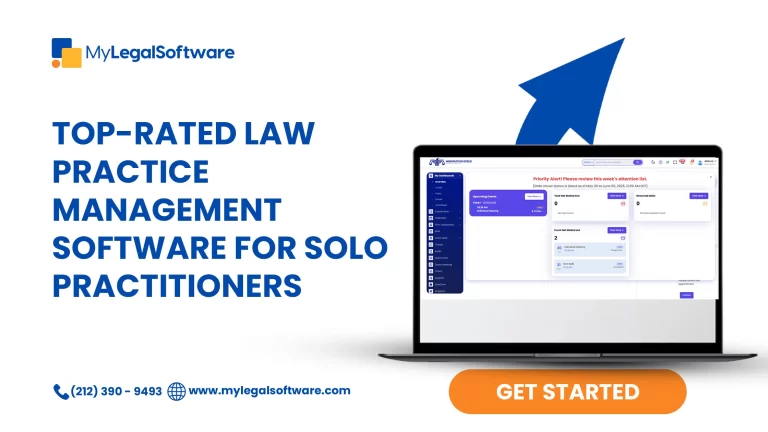Elevating your business’s online presence and capturing a wider customer base isn’t always a straightforward task. Many businesses struggle to seize valuable opportunities because they haven’t mastered the intricacies of local SEO. If your online efforts aren’t yielding the desired results, you’re not alone.
The first step to rectifying these issues is identifying them. This is where a local SEO audit comes into play. By conducting a comprehensive audit, you can pinpoint the exact areas that need improvement and take actionable steps to enhance your online visibility and rankings.
In this guide, we’ll walk you through the process of conducting a local SEO audit to empower your business with the insights and strategies needed to thrive in the competitive online landscape. Let’s dive in and unlock the potential for your business’s digital success.
What is a Local SEO Audit?
A Local SEO audit is a systematic evaluation of your online presence and performance in local search results. It involves a detailed examination of various elements that impact your visibility and ranking in local search engine results pages (SERPs).
The primary goal of a Local SEO audit is to identify strengths and weaknesses in your online presence related to local searches and provide actionable insights for improvement.
What Are the Benefits of Conducting a Local Search Audit?
Performing a local search audit holds significant importance as it prevents the futile expenditure of time and effort on ineffective Search Engine Optimization (SEO) strategies. This audit involves a thorough examination of your business website’s ranking and performance, helping you identify the precise factors contributing to any decline in rankings.
The insights gained from this analysis are invaluable. They allow you to optimize your local SEO efforts strategically, ensuring that you allocate resources wisely rather than blindly investing in areas that may not yield the desired results.
In essence, a well-executed audit empowers you to make informed decisions, conserve resources, and ensure that your SEO endeavors translate into tangible outcomes. This ultimately enhances your online visibility and sets the stage for long-term success in the digital world.
When Is the Right Time to Think About a Local SEO Audit?
Here are various scenarios in which it’s advisable to contemplate conducting a local SEO audit:
- Business Launch: When you’re starting a new business, it’s an ideal time to lay a strong SEO foundation to establish your online presence.
- Rankings Decline: If you notice a drop in your website’s rankings, a local SEO audit can help pinpoint the reasons behind this decline and rectify them.
- Business Relocation: When your business changes its location, it’s essential to update your listings and ensure your local SEO elements are aligned with the new address.
- Website Launch: When launching a new website, conducting an audit ensures that all the necessary local optimization elements are correctly implemented.
- Low Local Traffic: If you’re not attracting sufficient local traffic and leads, an audit can reveal areas where your local SEO strategy may be lacking.
- Increased Competition: The arrival of new competitors in your industry may necessitate staying ahead in local search results, making an audit valuable.
- Marketing Strategy Alignment: When aligning your overall marketing strategy and campaigns with SEO efforts, an audit helps ensure synergy between your marketing efforts.
- Penalty or Algorithm Update: If your website has been penalized or impacted by algorithm updates, an audit can identify issues and guide you in rectifying them.
- Periodic Reviews: Regular audits are essential to adapt to changing search trends and ensure your local SEO remains effective and up-to-date.
Performing a Thorough Local SEO Audit: 9-Steps
Evaluating Your Local SEO Rankings
To assess how well your website is doing in search engine results, you need to understand where it stands for the keywords you’re focusing on. This is akin to checking your position in the lineup when running a race.

However, in the world of local SEO, it’s not just about being at the top of the list overall; it’s also about your performance in specific areas. Imagine it as competing in different races, each taking place in a distinct neighborhood.
To truly gauge your success, you must run these localized races by conducting searches from the very areas you wish to target. This way, you’ll have a precise view of how well you’re positioned to be found by local customers in each of your desired locations.
Analyzing Your Google Business Profile
Your Google Business Profile, previously known as Google My Business, is like a digital storefront for your local business. It’s one of the most valuable assets in your online toolkit.
Assuming you’ve already claimed and maintained your Google Business listing with accurate information, it’s time to take a closer look. Think of this as inspecting your shop window to make sure it’s inviting and appealing to potential customers. (Google Business Profile).
Check every facet of your profile meticulously to ensure it aligns with best practices. Are your business hours up to date? Is your address correct? Are the photos showcasing your business in the best light?

But that’s not all. Dive into the Insights section, which is like a report card for your online presence. It provides valuable data on how your profile is performing.
Are you reaching enough customers in your target area? Are people finding you through searches? By scrutinizing these metrics, you can fine-tune your profile for optimal impact and ensure it’s working effectively as your virtual shop window in the digital world.
Assessing Google Penalties
In local SEO audits, one critical step is to thoroughly investigate the possibility of Google penalties affecting your website’s performance. Google penalties can have a detrimental impact on your SEO efforts, and it’s not always evident when you’ve incurred one.
Google penalties can manifest in various ways, and a drop in your website’s ranking is just one indicator. Think of it as a red flag that something might be amiss. However, there are more subtle signs, too, especially when Google changes its algorithms. Your website may be impacted without you even knowing it.
To uncover these penalties, you need to turn to the Google Search Console, which is like your financial statement for SEO. There, you’ll receive notifications detailing the causes of any penalties and what you need to do to rectify them.
Common penalty triggers include issues like having thin content on your website, sneaky redirects, spam generated by users, or unnatural link structures. Addressing these issues is crucial.
Once you’ve fixed the problems, you can submit a reconsideration request to Google, akin to resolving a financial dispute with your bank. This process ultimately enhances your website’s performance and helps you steer clear of penalties in the future.
Conducting Local Keyword Research
In the realm of local SEO, it’s crucial to take a deep dive into researching the keywords that matter most for your specific location.

Think of this as mapping out the streets and landmarks in your neighborhood. You want to ensure your online presence is visible when people search for businesses or services in your area.
Start by checking if you’re already ranking for location-based keywords that target your specific region. For example, if you’re a personal injury attorney in New York, you’d want to see if your website pops up when someone searches for “personal injury attorney in New York” or similar phrases.
If these keywords aren’t already part of your local content strategy, it’s time to incorporate them strategically. Think of this as adding signposts throughout your online content that guide people to your virtual doorstep. These signposts can take the form of keywords placed in key areas like URLs, headings, title tags, meta descriptions, and anchor text across multiple web pages. This practice enhances your local visibility, making it easier for potential customers in your area to find you.
For quicker wins, you can also explore options like paid searches or Pay-Per-Click (PPC) ads for specific keywords.

Additionally, consider leveraging social media and other digital marketing techniques to boost brand awareness in your local community, like putting up billboards and flyers to make your business known in your neighborhood.
Evaluating Your Website’s Authority, Internal Links, and Backlinks
It’s crucial to take stock of your website’s overall strength and connections in local SEO audits, much like assessing the foundation and pathways in a house.
First and foremost, let’s talk about backlinks. These are like commendations and referrals from other reputable sources on the web. They don’t just boost your SEO; they also contribute significantly to your website’s overall credibility.
You can gauge your website’s authority by using tools like Ubersuggest or Moz to find your Domain Authority (DA). Think of this as your website’s reputation score. The more unique and trustworthy domains link to your site, the higher your DA becomes. It’s like accumulating trust points with search engines like Google, Yahoo, and Bing.
While conducting this audit, focus on your link profile. Check all your inbound links for their quality, relevance, and potential for growth. Tools like Ahrefs and SEMrush are your trusty guides for this, providing comprehensive link analysis.
But that’s not all. Take a page from your competitors’ book. By repeating this process for your top competitors, you can identify areas where you need improvement and learn from their strategies.
Additionally, tend to your internal links. Broken or misdirected internal links can lead to a frustrating user experience. So, as part of your audit, seek out these issues and fix them. Also, look for opportunities to create connections between prominent pages on your website.
Assessing Your Website’s Local Content
When it comes to local SEO audits, one essential aspect is scrutinizing the content on your website, much like reviewing the contents of a book.
Think of high-quality content as the heart and soul of your website. It’s like crafting a unique story that captivates your readers. To ensure your website performs well in search engines, you must avoid using duplicate content. Search engines view duplicated content as misleading, and it can negatively impact your rankings.
So, during your audit, meticulously examine every page on your site to confirm that there are no repetitions. Additionally, don’t forget to inspect your Google Business listing to ensure there are no duplicate entries there either.
If you do happen to find duplicate entries on Google Business, you can request Google to merge them into a single account. Think of it as consolidating editions of your book into one master edition to avoid confusion and ensure a cohesive and accurate representation of your business online.
Reviewing Your Citations
Another critical step is reviewing your citations, which is a bit like taking a thorough inventory of your business’s listings in various directories.
Consider these listings as references or mentions of your business across the web. Just as having references can boost your credibility, being listed on directories like Yelp, industry-specific review sites, or local partner websites can enhance your local presence and reputation in a specific area.


However, here’s the catch: consistency is key. Imagine your business’s name, address, and phone number (NAP) as your personal details. You want these details to remain the same across all your listings, just like ensuring your name and contact number are consistent on your resume and business cards.
That’s where a citation audit comes in handy. It’s like conducting a thorough check to ensure all your personal details are accurate and consistent everywhere.
You can perform this audit manually by doing a simple Google search for your business name and clicking on each link to verify the information. Think of this as cross-referencing your personal details on various documents.
Alternatively, you can use citation management tools to streamline the process and make updates as needed. It’s like having an automated assistant to ensure your details are consistent and up-to-date across the board.
Examining Your Customer Ratings and Reviews
One crucial step involves taking a close look at your customer ratings and reviews, they hold immense power in building trust and credibility with your potential customers.

Here’s the golden rule: always respond to these reviews, whether they’re glowing praises or constructive criticism. However, it’s particularly important to address the negative reviews promptly. These reviews, if left unattended, can potentially harm your business, and many potential customers rely heavily on the experiences of others when making decisions.

Now, here’s the challenge: time constraints can sometimes lead to overlooking these responses. It’s like having a busy schedule that leaves you little time to respond to messages from friends. That’s where customer rating and review audits come to your rescue.
These audits help ensure you don’t miss any important feedback. By conducting these audits, you can actively engage with your customers, build trust, and maintain a strong online reputation. It’s like being a good friend who values and acknowledges the thoughts and opinions of others.
Analyzing Your Competitors
Conducting a competitor analysis is like sizing up the competition in your neighborhood. So, what do you need to do? First, identify your top three closest competitors in your physical location that are ranking higher than you in local searches.
Next, create a local SEO audit checklist based on the strategies these competitors are using. It’s like observing the successful businesses in your area and taking notes on what makes them thrive. Conduct a comprehensive audit of your own website to identify areas where you can improve.
However, here’s the secret sauce: while it’s essential to keep an eye on your competition, the ultimate key to success lies in enhancing your clients’ online and offline experiences. This is like providing exceptional customer service and making your business a welcoming and sought-after destination in your neighborhood.
By focusing on both online and offline aspects, you can surpass the competition and establish yourself as a local favorite. It’s like becoming the go-to place that everyone recommends to their friends and family.
Exploring 6 Top Local SEO Audit Tools
When you’re diving into the world of local SEO audits, you need the right software to analyze and improve your local SEO performance. These tools will help you uncover insights, streamline your efforts, and ultimately, boost your online visibility in your local community.
Here are six of the best local SEO audit tools, each with its unique strengths:

Moz Local offers a comprehensive suite of tools to help you manage your local business listings effectively. It’s like having a digital assistant to ensure your business information is accurate and consistent across the web.

BrightLocal provides a user-friendly platform to track and improve your local SEO. It’s like a GPS for your online presence, helping you navigate to the top of local search results.

SEMrush offers a robust toolkit that includes local SEO features. Think of it as a Swiss Army knife for SEO, helping you uncover valuable insights and opportunities to boost your local rankings.

Ahrefs is known for its comprehensive backlink analysis, but it also offers local SEO tools. It’s like having a detective on your team, uncovering the secrets behind your competitors’ local SEO success.

Whitespark specializes in local search and reputation management. It’s like having a public relations expert to ensure your business shines in local search results.

Screaming Frog’s SEO Spider tool can be a handy asset for technical SEO audits, including local SEO. It’s like having a digital spider crawling through your website to find and fix issues that may be holding you back in local search.
Conclusion
In digital marketing, mastering the art of local SEO audits is like having the keys to unlock your business’s full potential. Just as a well-prepared chef creates a masterpiece with the right ingredients and techniques, conducting a local SEO audit ensures your online presence shines.
By following the steps outlined in this guide, you’re equipped with the knowledge and tools to take charge of your business’s local SEO.
Remember, local SEO isn’t just about rankings; it’s about connecting with your community, building trust, and thriving in the local market. Much like a trusted local business that becomes a cornerstone of its neighborhood, your online presence can become an invaluable asset.
So, whether you’re a small business owner or a digital marketer, embrace the power of local SEO audits. They’re your secret recipe for success, ensuring your business not only survives but thrives in the digital age.
With these insights, you’re ready to make your mark in the local search space and leave a lasting impression on your target audience.







